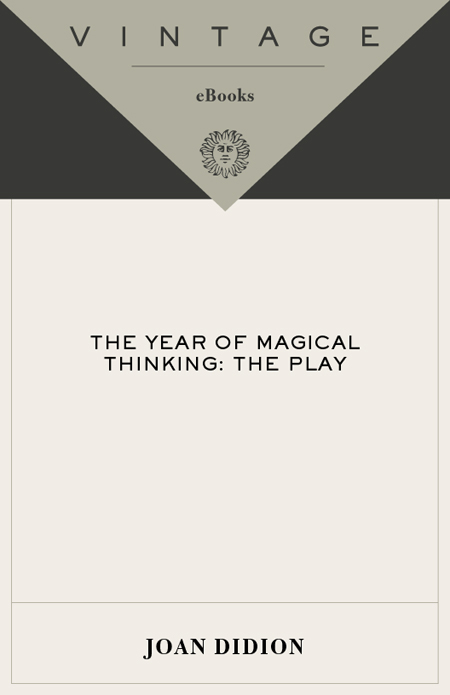
The Year of Magical Thinking
The Play
- اطلاعات
- نقد و بررسی
- دیدگاه کاربران
نقد و بررسی

December 5, 2005
After her husband's fatal heart attack, which came at a time when their daughter Quintana was in intensive care for complications after pneumonia, Didion was labeled "a pretty cool customer" by a social worker because she seemed to be handling these shocks so calmly. Caruso's reading certainly reflects this aspect of Didion's reaction—sometimes her clear, elegant voice seems downright cold, making the listener wish for a little more emotion. The slightly eerie sounds of bells and cello that swell in at occasional breaks in the narration help in this respect, but mostly the audiobook is as straightforward a production as Didion wanted her life to be in that horrible year. Throughout those months, Didion immersed herself in the literature of grief and quotes frequently from poets and writers who helped her come to terms with her pain. Caruso does a good job with these passages, lingering on and highlighting certain phrases that Didion returns to time and again, shifting their meaning slightly as she progresses. Despite trying to write in an almost clinically detached way, Didion's sorrow and anger do break through at times in the book. Unfortunately, Caruso's cool reserve never cracks, so this audio ends up making less of an impact than the National Book Award– winning print edition. Simultaneous release with the Knopf hardcover (Reviews, June 27)

Starred review from June 27, 2005
Many will greet this taut, clear-eyed memoir of grief as a long-awaited return to the terrain of Didion's venerated, increasingly rare personal essays. The author of Slouching Towards Bethlehem
and 11 other works chronicles the year following the death of her husband, fellow writer John Gregory Dunne, from a massive heart attack on December 30, 2003, while the couple's only daughter, Quintana, lay unconscious in a nearby hospital suffering from pneumonia and septic shock. Dunne and Didion had lived and worked side by side for nearly 40 years, and Dunne's death propelled Didion into a state she calls "magical thinking." "We might expect that we will be prostrate, inconsolable, crazy with loss," she writes. "We do not expect to be literally crazy, cool customers who believe that their husband is about to return and need his shoes." Didion's mourning follows a traditional arc—she describes just how precisely it cleaves to the medical descriptions of grief—but her elegant rendition of its stages leads to hard-won insight, particularly into the aftereffects of marriage. "Marriage is not only time: it is also, paradoxically, the denial of time. For forty years I saw myself through John's eyes. I did not age." In a sense, all of Didion's fiction, with its themes of loss and bereavement, served as preparation for the writing of this memoir, and there is occasionally a curious hint of repetition, despite the immediacy and intimacy of the subject matter. Still, this is an indispensable addition to Didion's body of work and a lyrical, disciplined entry in the annals of mourning literature. Agent, Lynn Nesbit. 60,000 first printing; 11-city author tour.




دیدگاه کاربران